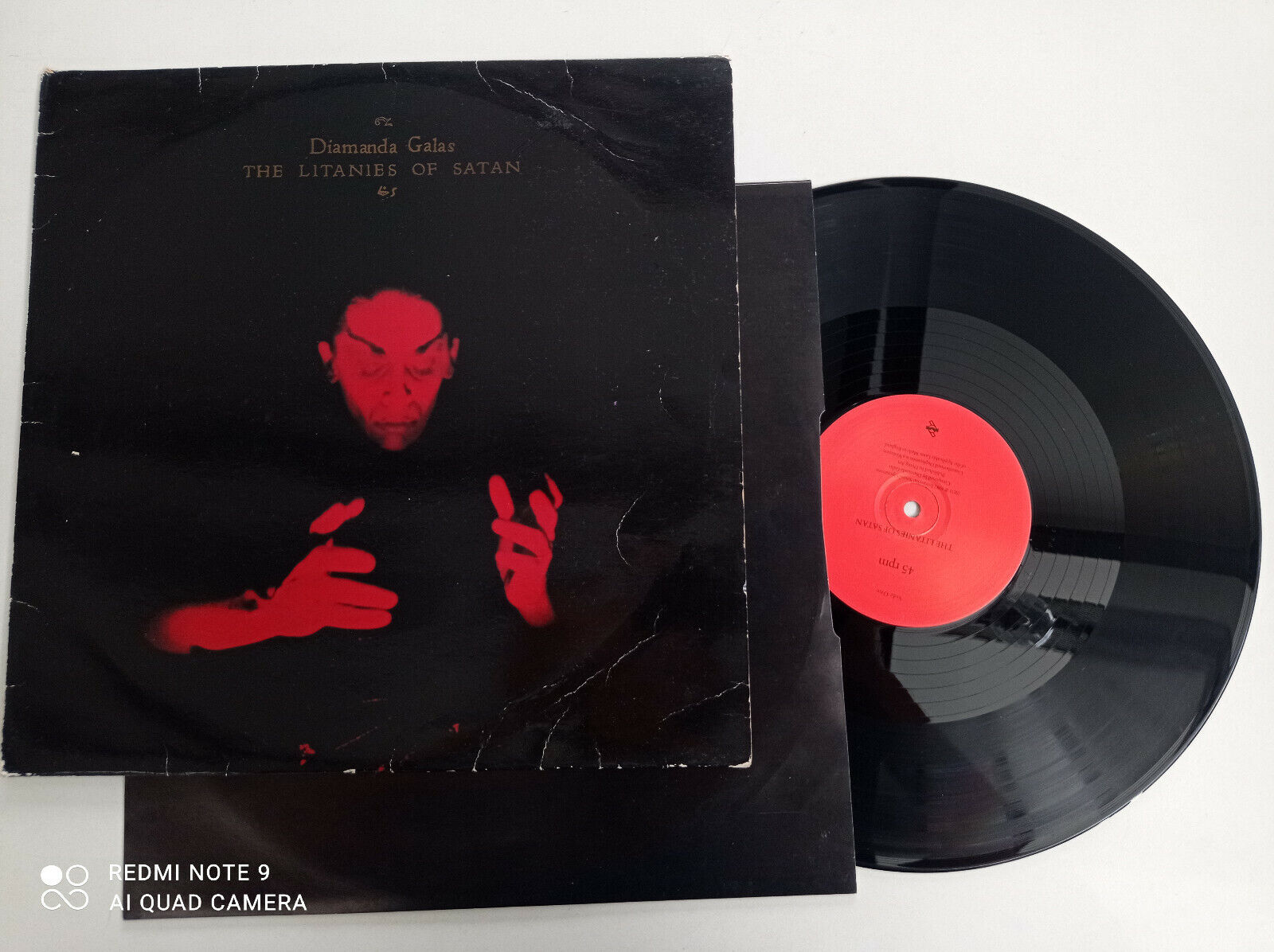Description
Diamanda Galas’ debut album “Litanies of Satan”, originally released in 1982, reissued on the artist’s own Intravenal Sound Operations label. The album has been meticulously remastered from the original Y Records analogue tapes and features the original classic artwork.
This is the first release in a reissue series of Galás work since she regained ownership and control of her entire catalogue last year. Her 1982-2008 work, tied up in major label limbo, was unavailable for years. In April 2019 Diamanda’s discography was made on all major streaming services. The s/t Metalanguage album Diamanda Galás, from 1984, has never been reissued and will also be remastered for release this Fall.
When asked about her earliest work, in the early nineties Diamanda spoke of the ‘athletic discipline’ required, and described the physical toll of her performances as ‘like a ripping of the flesh’. Likening the discipline of her attack to warfare, she said that the idea of performing without perfect vocal technique would be like ‘someone going to war who didn’t know how to fight’; she described singing as ‘an attack energy’ – the transformation of the body into a weapon. The Litanies of Satan is divided into two experimental pieces of physical performance with a terrifying intensity, at the limits of madness, which is certainly not for all ears but is in all essence timeless.
Side A: The Litanies of Satan is the result of six weeks of intensive work with UK producer Dave Hunt, who is also a composer of electronic music. Known for his work in experimental music, reggae, and post punk, he has worked on records by Michael Nyman, Gavin Bryars, Prince Far I, Adrian Sherwood, The Pop Group, Evan Parker, Derek Bailey to name a few. Recorded in 1982 in Stoke Newington in north-east London.
The Baudelaire Song Project, which researches song settings of French Poet Charles Baudelaire, cited the vocal performance of Litanies as ‘doing away with the disconnect between body and voice which is inherent in bel canto sound ideals, where an undeniably physically demanding use of the body must appear effortless and free of strain or stress.’
Side B: Wild Women with Steak-Knives was recorded by Richard Zvonar, also a composer of electronic music, in a San Diego studio that Galás states must remain nameless. Many performances of this work were performed in quadrophonic sound with five microphones, one assigned to all speakers, and the other four assigned to individual speakers. Recorded in 1982.”





